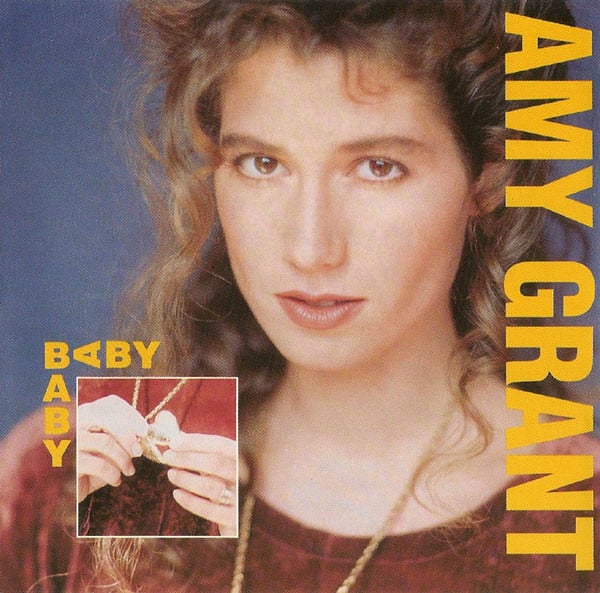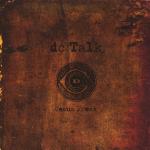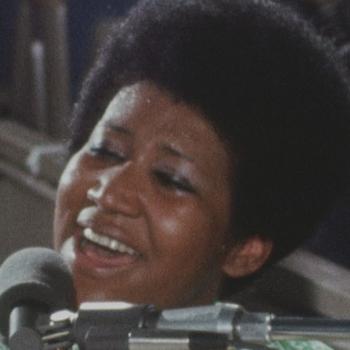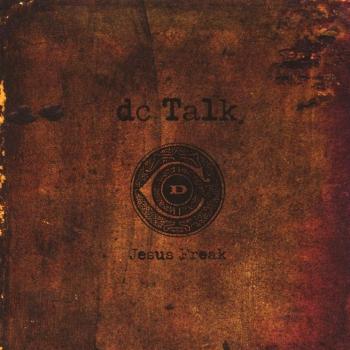
Two big pop culture controversies during my youth revealed to me the tension between art and faith. The first was the release of Martin Scorsese’s 1988 film The Last Temptation of Christ. The second? The 1991 Amy Grant pop hit “Baby, Baby.” I understand the controversy over Last Temptation. I’ve written before about my conflicted relationship with Scorsese’s Jesus movie and its role in shaping my opinions about theological imagination. But to this day, I find it hilarious that this song was ever considered dangerous.
As Amy Grant’s Heart in Motion album gets a special edition re-release this weekend to celebrate its 30th anniversary, I want to look back on the album’s hit single to see how such an innocuous, upbeat song caused such a stir.
Why this song?
This column will likely discuss Amy Grant several times in the future. The singer-songwriter was one of the first CCM superstars, shooting to fame with songs like “Thy Word” and “El Shaddai.” Her Christmas albums are revered among Christian culture. And, at 60 years old, she’s still going strong. I saw her in concert a few years back (where my podcast co-host exchanged fart jokes with her before the show) and was reminded of how many flat-out great songs she’s responsible for. “Baby, Baby” remains her best-charting single, clocking in atop the Billboard 100 upon release.
And, I’ll admit it: it’s a bop. It’s a bouncy, sunny love song. Keith Thomas’ music is a classic earworm. Its lyrics are simple and goofy, but that’s forgivable in a song that captures the feelings of puppy love and infatuation (Grant maintains it was inspired by her then-infant daughter, which also works). It’s nearly four minutes of sappy bubblegum pop; the stuff that hits are made of.
But what it’s most definitely not is a praise-and-worship song. And while it’s standard practice for Christian bands to throw in the occasional love song these days, it was downright shocking for the church crowds to hear CCM’s It Girl sing a song without the name “Jesus”. Ironically, that controversy and the ensuing discussion are exactly why it’s one of the quintessential CCM songs, and even inspired a standout moment in the recent Netflix musical A Week Away.
What is Amy Grant allowed to sing about?
There is absolutely nothing offensive about the lyrics of “Baby, Baby” or the entirety of Heart in Motion. And yet, families in our church — including my own, for a time — banned it. But the thing that got the Charismatic Karens and Fundie Freds all lathered up about the album had less to do with anything in its lyrics and more with what wasn’t in them. That is, any mention of Jesus.
Which, by the way, is not true: the album’s song “Ask Me” is about faith in the midst of trials, and one of the rare early CCM songs to openly address doubt. The album’s closing ballad, “Hopes Set High,” contains the line “when it all comes down, if there’s anything good that happens in life, it’s from Jesus.” But it didn’t matter, because songs like “Every Heartbeat” and “Baby, Baby” were flat-out love songs. And Christian artists were not supposed to do that.
This is patently absurd and a deep misunderstanding of the Christian life. Christians don’t just sit in church, read the Bible and pray. They go to work, they make friends, they have fun, they fall in love. Good art by Christians shouldn’t focus only on praise and exclude the stuff of real life; art by Christians should showcase how Jesus is woven amid these other aspects. Jesus doesn’t prohibit these things, he enhances them. And what better act of praise than using your art to celebrate these very good gifts and experiences?
The tale of the tape
While my parents eventually came around to Heart in Motion and I know we had a disc somewhere in our house, they never quite came around to “Baby, Baby.” Again, this had less to do with the actual content of the song and more with its video. They and their friends were aghast that Amy Grant was dancing, canoodling and kissing a man who was not her husband.
Again, that’s only partially true. The video does show Grant dancing around with a man who is most certainly not her then-husband, Gary Chapman. But while there’s a bit of nuzzling and caressing, there’s no official kiss in the song. Instead, the four minutes are given over to the goofiness of young love, as Grant and the man indulge in the sort of sappy behavior that accompanies puppy love.
Would it be bad if she kissed the man? Is it wrong that her husband isn’t in the video? Again, it raises a question of what is appropriate for Christian artists. Would we expect a Christian actress from kissing someone who’s not her husband (put your hand down, Kirk Cameron)? Does a physical kiss on screen automatically imply emotional attachment? If Jesus said that it’s possible to say and do one thing but believe another, we might want to think closely about that before jumping to conclusions.
Fear of fun
In the end, I think the controversy of “Baby, Baby” had nothing to do with any concerns about illicit behavior or wordiness and more of a discomfort with frivolity. Christian culture often places a heavy burden on artists; their job, they’re often told, is not to entertain others or even to express themselves. It’s to save souls and wage spiritual war. And I wouldn’t be surprised it much of the fear people had about Grant’s new direction came from a concern that she was throwing away her god-Given calling and using her talent to dance around and sing about love, which just plays into the “If you’re happy and you know it, that’s a sin” mentality that Christians too often cultivate.
Amy Grant wasn’t the first Christian artist to sing a love song, but at that point she was the biggest. She was the largest artist to crossover to the mainstream, something Christian culture treated as an abandonment. And she received the treatment such pioneers often receive: suspicion, ridicule and controversy. She was often a target of gossip regarding her marriage and her 1999 divorce. People parsed everything she said with a heresy filter. Which is a shame. Amy Grant isn’t just a good artist; she’s proven over the years to be a caring and compassionate individual, and a pillar of both Christian music and the Nashville scene. She’s been welcomed back into Christian culture for years, but I don’t think she’s ever received the apology she deserves.
Three decades after “‘Baby, Baby’-gate,” I’d like to imagine Christian culture came around. We didn’t flip out over Sixpence None the Richer’s “Kiss Me,” after all. But I’m not so sure. I wonder what would happen if Chris Tomlin released an album of love ballads or TobyMac put out a compilation of fun jams that never mentioned Jesus. I worry that we still have a tendency to think that truly Christian art compartmentalizes, when it should overflow and make room for all of life’s experiences.












